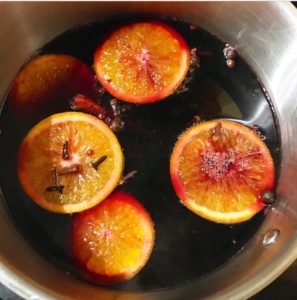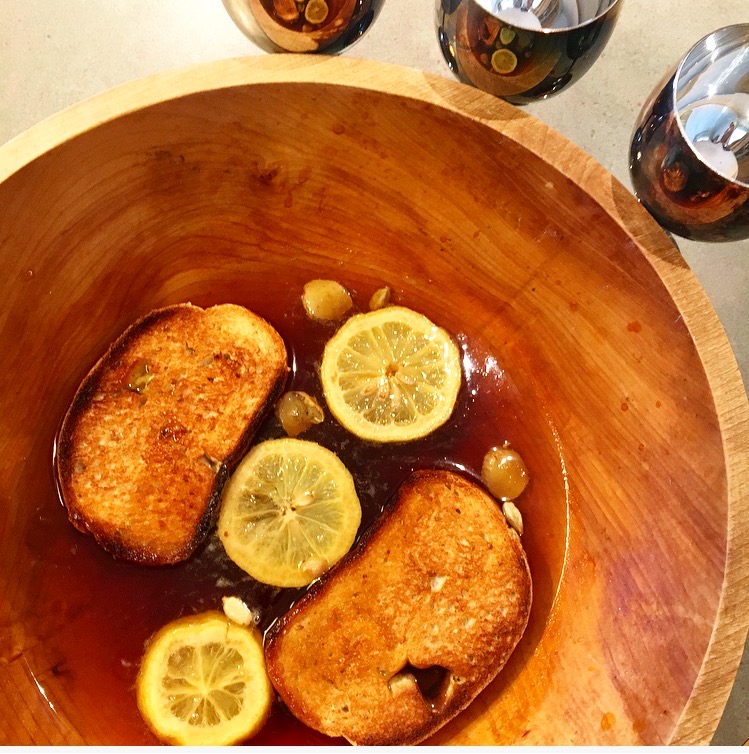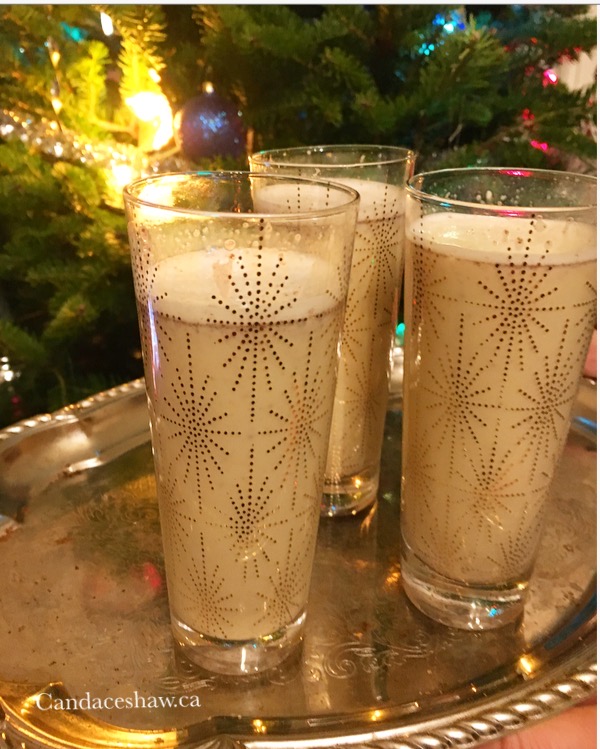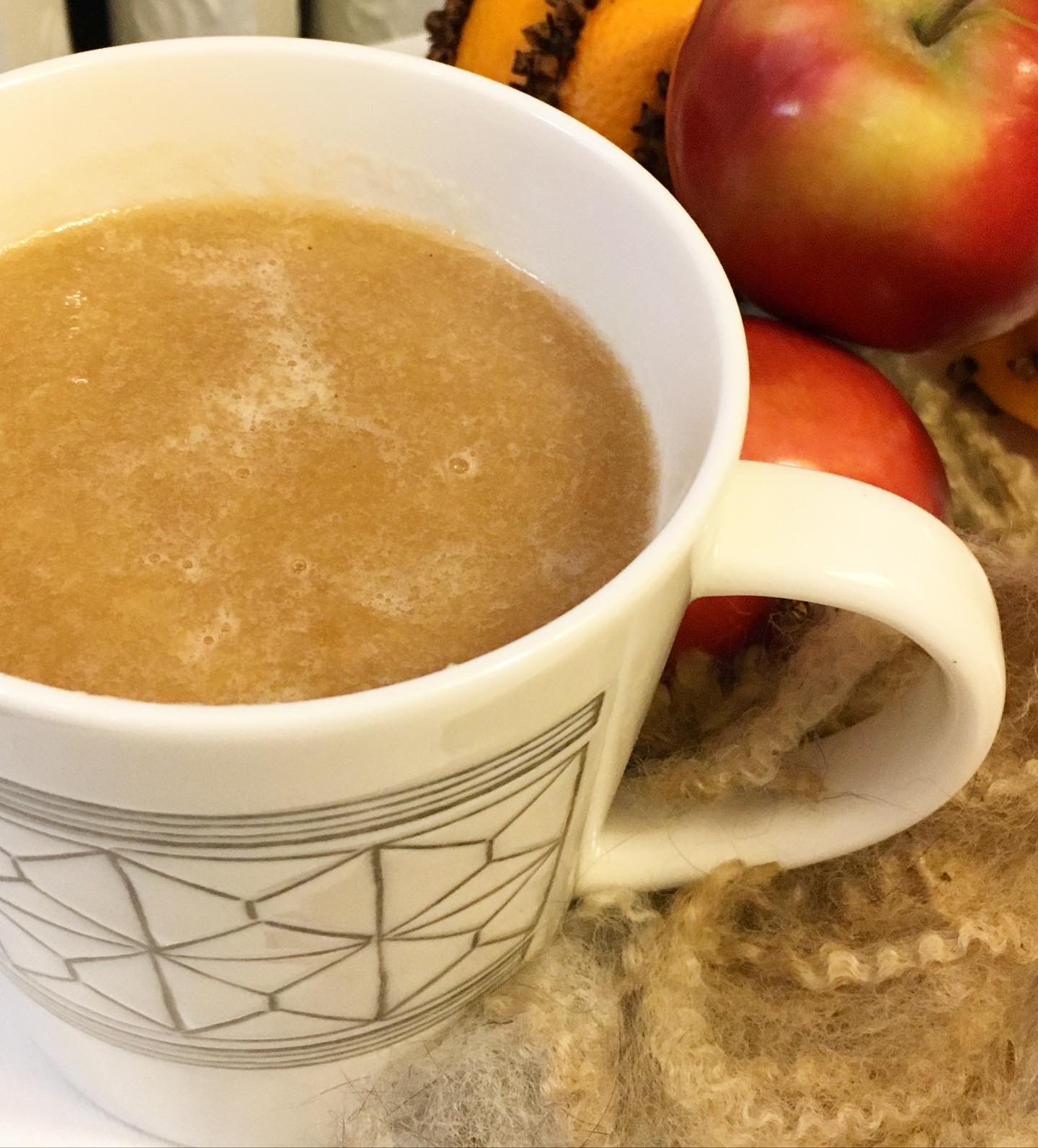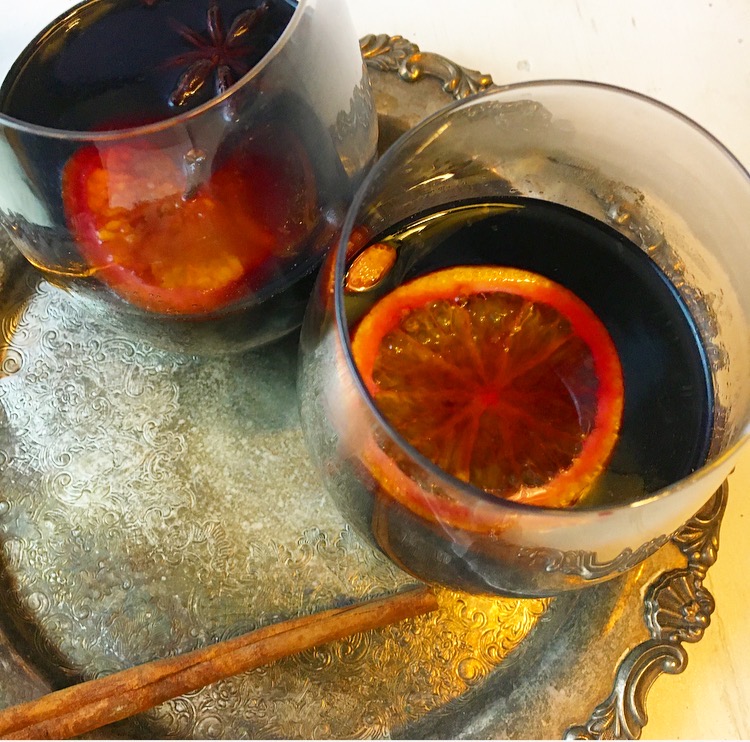
Mulled Wine – Glühwein
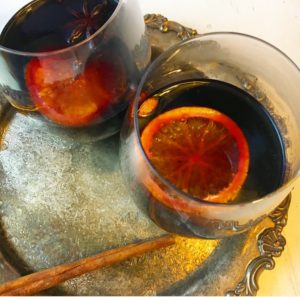
Glühwein translates as ‘glowing wine,’ and I agree that it adds a glow to the season. In my time at the Toronto Christmas Market, the smell of mulled wine was one of the most evocative scents of the season, and a glass of it at the end of a long, cold day sent me home with a warmth in my heart.
People have been drinking spiced wines since the Roman period at least, and the earliest recipe that we have is from 1390, which is older than any of the other recipes I’ve been able to find for my other festive drinks.
This is another drink that was given to the sick in the Middle Ages and well into the 19th century, because the spices were thought to help with illnesses. Now we have penicillin, which is generally much more effective.
Mulled Wine – Glühwein
Serves two to four.
My recipe includes the non-traditional addition of maple syrup as a sweetener, but you can substitute sugar or honey. I also dislike the taste of star anise in Glühwein, so after a few trials I’ve decided I’d leave it out in future.
Ingredients
- 1 bottle red wine
- 1/2 an orange, sliced into rounds
- ¼ cup maple syrup
- ¼ cup brandy (alternately, crème de cassis)
- 1 teaspoon whole cloves
- 2 cinnamon sticks, plus more for garnish
- 5 allspice berries
- 1 star anise (optional)
- 5 cardamom pods
- whole nutmeg, to grate on top
Directions
- Pour the wine into a saucepan or slow cooker with a low heat.
- Add in the orange slices, maple syrup, cloves, cinnamon, star anise, and cardamom pods.
- Allow the wine to mull for 30 minutes to 1 hour to allow the flavours to meld. You can keep the mulled wine on the low heat for up to 2 hours.
- When about to serve, pour 1/4 cup brandy into the wine mixture and stir.
Historical Recipe Sources
I’m including some historical recipes and their sources; the oldest is from 1390, a cookbook from the court of King Richard II, who ruled England from 1377 – 1399. The court and all noble people at the time would’ve mostly spoken French, while the average people were speaking English, which is why the text of an English cookbook is in a kind of Franglais that feels familiar to many Canadians.
Pur fait ypocras. Troys vnces de canell & iii vneces de gyngeuer; spykenard de Spayn, le pays dun denerer; garyngale, clowes gylofre, poeure long, noiez mugadez, maziozame, cardemonii, de chescun dm. vnce; de toutes soit fsait powdour &c.
Rough translation (corrections welcome!):
To make Hippocras: [Pur fait ypocras.]
3 ounces cinnamon [Troys vnces de canell]
3 ounces ginger [iii vneces de gyngeuer]
1/4 tsp (I think?) of Spikenard of Spain [spykenard de Spayn, le pays dun denerer]
1/4 tsp galangal [garyngale]
1/4 tsp cloves [clowes gylofre]
1/4 tsp long pepper [poeure long]
1/4 tsp nutmeg [noiez mugadez]
1/4 tsp majoram [maziozame]
1/4 tsp cardomom [cardemonii]
?? [de chescun dm. vnce;]
Make it into a powder and etc. [de toutes soit fsait powdour &c.]
Some notes: I’m basing the measurements for the last six spices off of other translations I’ve seen online, at British Food: A History and elsewhere. Though they and others list Grains of Paradise in their translations, I don’t see it in the text, though I may be mistaken.
Spikenard of Spain is an extract of a plant from the valerian family which was commonly used in perfumes as well as in cooking since the Roman period.
How to Mix Drinks, Or, The Bon-vivant’s Companion, 1862
119 MULLS AND SANGAREES
120 Mulled wine without Eggs
To every pint of wine allow 1 small tumblerful of water Sugar and spice to taste. In making preparations like the above it is very difficult give the exact proportions of ingredients like sugar spice, as what quantity might suit one person would to another quite distasteful. Boil the spice in the water the flavor is extracted then add the wine and sugar bring the whole to the boiling point, then serve with of crisp dry toast or with biscuits. The spices used for mulled wine are cloves grated nutmeg cinnamon or mace. Any kind of wine may be used, mulled port or claret are those usually selected for the purpose, and the latter requires a large proportion of sugar. The vessel that the wine is boiled in must be delicately clean.
121 Mulled Wine with Eggs
1 quart of wine, 1 pint of water, 1 table spoonful of allspice, and nutmeg to taste; boil them together a few minutes, beat up six eggs with to your taste, pour the boiling wine on the eggs, stirring it all the time. Be careful not to pour the eggs into the wine or they will curdle.
